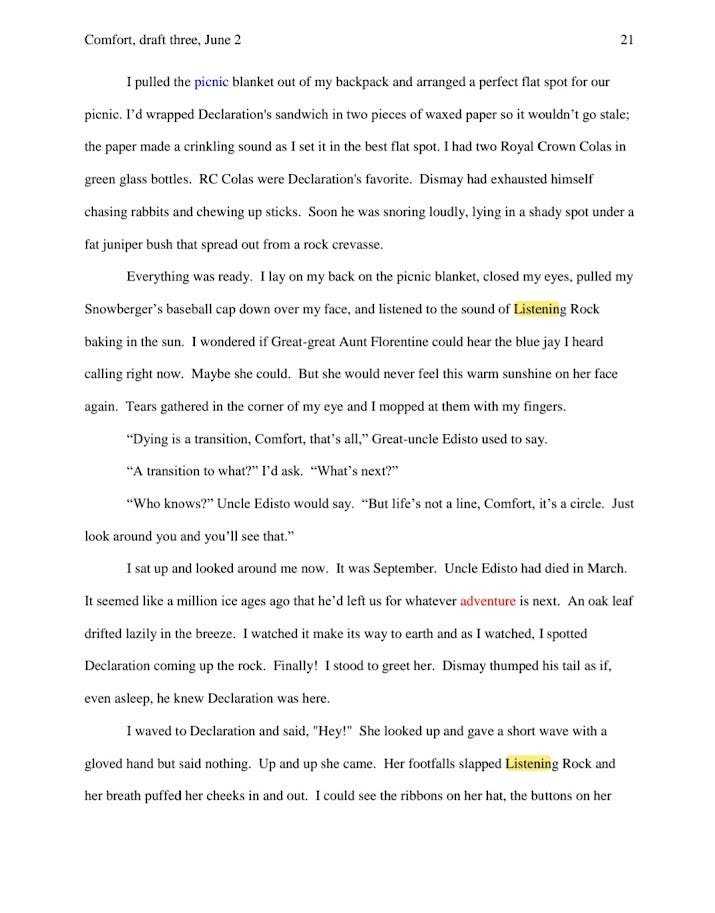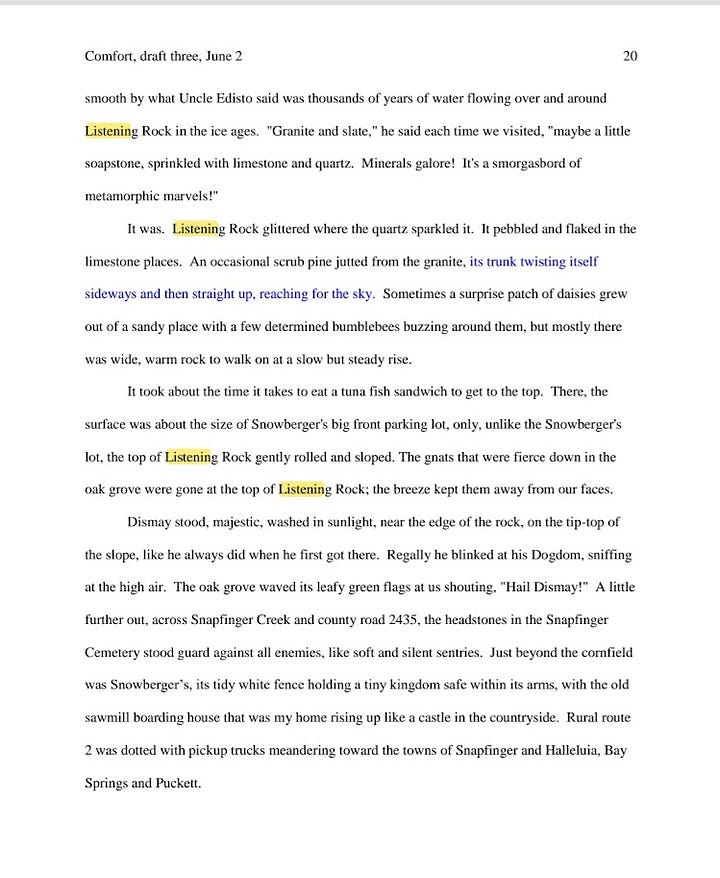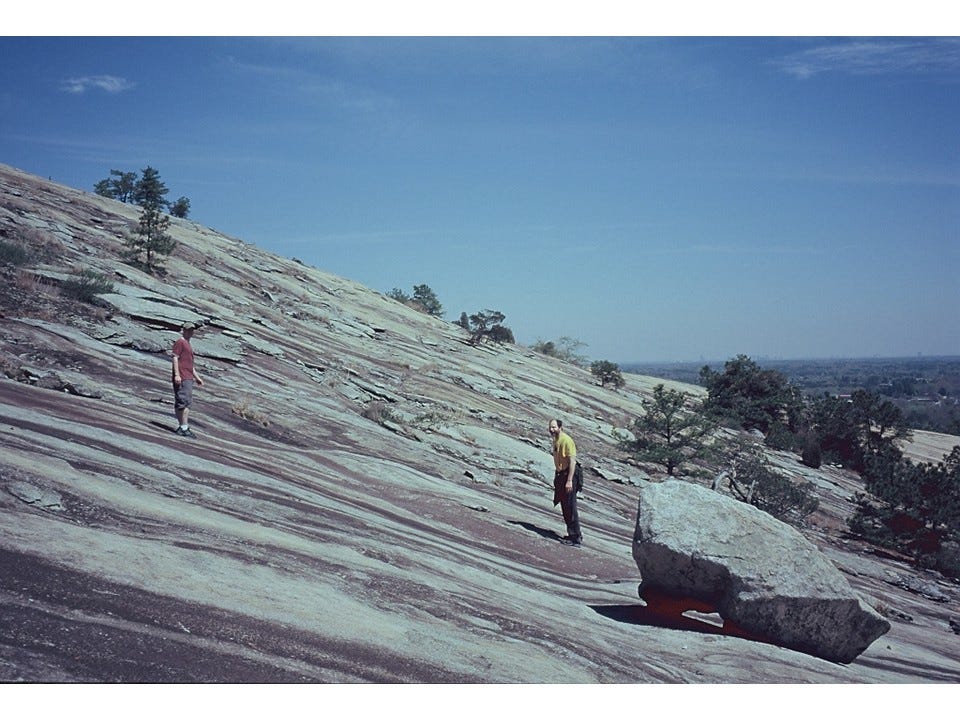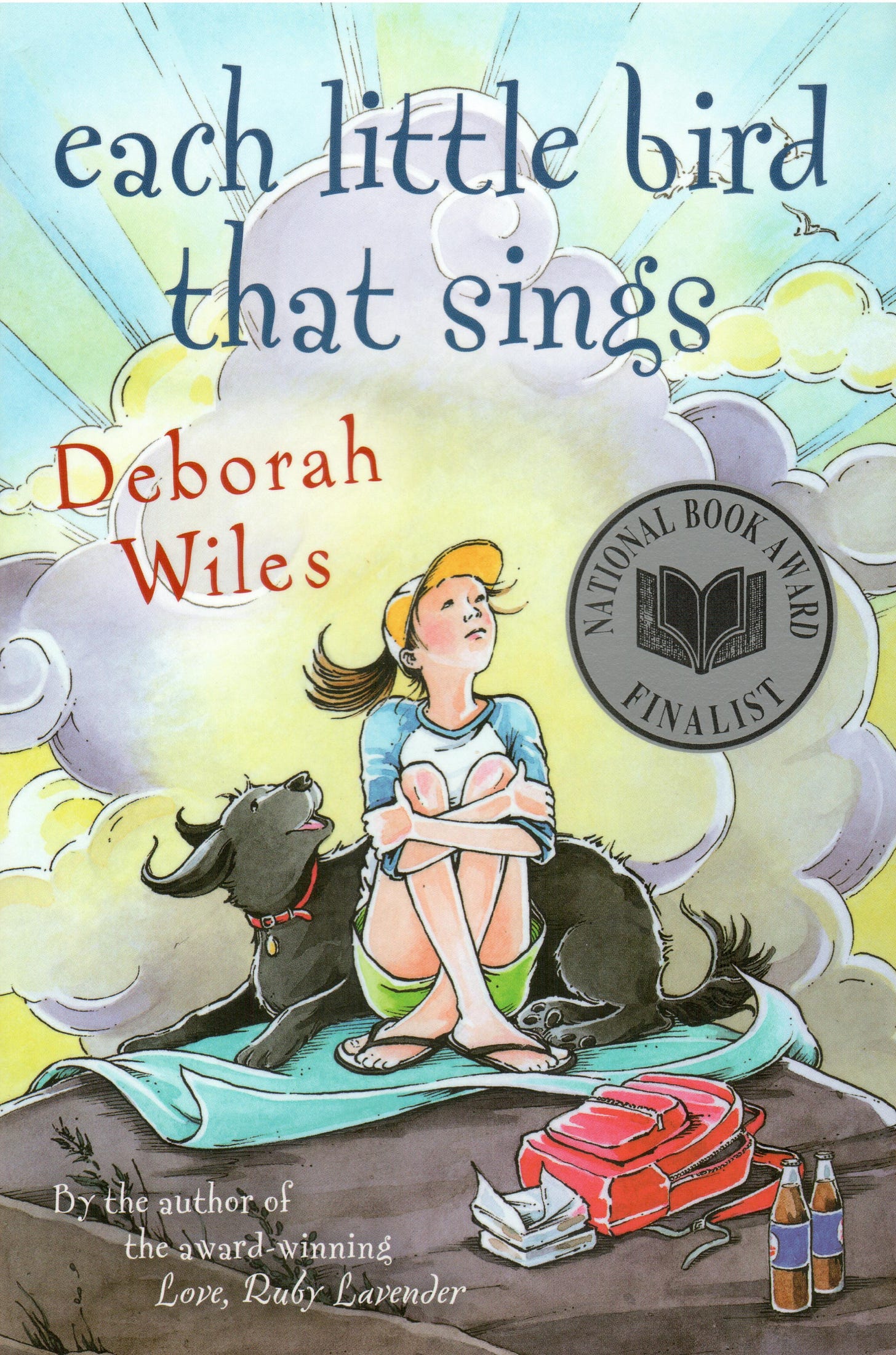Storybelly Extra: The Power of Listening - A Writer’s Essential Skill
Listening shapes storytelling and connection. Here's how:
A thick stand of rose-of-sharon bushes had grown forever at the base of the rock. They guarded the path to the top with strong, woody branches full of wide, pink blooms. Hummingbirds and butterflies spent their days nosing around in rose-of-sharon’s sweet scent. I gave an appreciate sniff as I walked past the sentries and entered the world of Listening Rock.
— excerpt from Each Little Bird That Sings
Welcome to the most exciting topic imaginable: Listening. hahahaha. Okay, so not exciting, but essential. To listen half as much as we talk or MORE than we talk, is a superpower, a peace-maker, and a boon to ourselves and to the world.
I want to learn how to listen more and better, so I write quite a bit about listening, and when I teach writing, we listen… a lot. Here is more Listening, from the same chapter of Each Little Bird That Sings:
I had to watch my footing, but mostly the walk to the top was an easy one, even in my black flip flops, and I often imagined myself as Merriweather Lewis on the Lewis and Clark expedition (Discovering Our World Magazine, Issue 14) hiking up an enormous boulder worn smooth by what Uncle Edisto said was thousands of years of water flowing over and around Listening Rock in the ice ages. “Granite and slate,” he said, each time we visited, '“maybe a little soapstone, sprinkled with limestone and quartz. Minerals galore! It’s a smorgasbord of metamorphic marvels!
Does it seem like Listening to you? It is, my friend, it is. One more example, from the same page, same book:
It was. Listening Rock glittered where the quartz sparkled it. It pebbled and flaked in the limestone places. An occasional scrub pine jutted , its trunk twisting itself sideways and then straight up, reaching for the sky. Sometimes a surprise patch of daisies grew out of a sandy place with a few determined bumblebees buzzing around them, but mostly there was wide warm rock to walk on at a slow but steady rise.
I submit these passages are heard. They engage the senses in seeing, hearing, touching, tasting, and smelling Comfort’s walk to the top of Listening Rock. You are listening to her tell you all about it. You would not have the same experience were you the person making this walk. You would notice different things, have a different context in which to categorize what you notice, or maybe you would be oblivious to the sights and sounds and smells… even to the gnats that might bat at your face, or how long the trip to the top was. Here’s how Comfort describes it:
It took about the time it takes to eat a tuna fish sandwich to get to the top. There, the surface was about the size of Snowberger’s big front parking lot, only, unlike the Snowberger’s lot, the top of Listening Rock gently rolled and sloped. The gnats that were fierce down in the oak grove were gone at the top of Listening Rock; the breeze kept them away from our faces.
Now you can hear those gnats buzzing, can’t you? You can feel the breeze against your face, you can hear the soft sound it makes through the scrub pines. I’ve primed you for it.
But you have to listen. I engage all your senses, and then I give you a payoff, after Comfort describes her dog, Dismay, at the top of the rock, and then lays out her picnic for you (more listening involved, through using the other senses). The payoff:
Everything was ready. I lay on my back on the picnic blanket, closed my eyes, pulled my Snowberger’s baseball cap down over my face, and listened to the sound of Listening Rock baking in the sun. I wondered if Great-great Aunt Florentine could hear the blue jay I heard calling right now. Maybe she could. But she would never feel this warm sunshine on her face again. Tears gathered in the corner of my eye and I mopped at them with my fingers.
Sigh. Sniff. I heard all that. I know this girl now, do you? She has suffered a loss, she has walked to the top of her favorite place, she has brought her beloved dog and a picnic, and she is awash in feeling. I am, too, reading this. I heard about Comfort’s adventure. She told me all about it. And she used all her senses to do it? What did it look like, sound like, feel like, taste like, smell like?


How do we capture listening in the stories we write? And why is it so important? When I workshop with writers, I have them make their lists with me, circle what calls to them in that moment, fashion that circled thing into “one clear moment in time,” and “the time that,” and then I have them write their focus sentence at the top of a fresh page, and I have them write short. SHORT. One page for one clear moment in time, nothing before that moment, and nothing after that moment, just “the time that.” Just to get it down. They can expand it later. Make it known, that moment.
And the way I have them do it, is through listening. Listening to one another, through oral drafting and oral revision. Eventually we will workshop, live, here at the ‘belly, and we will practice this way of working with story. It is an elegant and effective writing tool. Before you write a word, you are telling me what the story is about. Telling your workshop partner. And you are listening. You listen to your partner tell you about “the time that” and “what happened first” and the rest of the story, and then, you hear yourself do the same thing.

Later, in revision, you can give me all the descriptive details you want, but for now, for getting at your story, you listen. Listen to what’s really on your heart, what it’s pulling at you to say, because you haven’t written it yet, you haven’t futzed with it, you haven’t judged it, you are just eager to tell someone else, and to have them listen. Listen to this! And then you reciprocate and listen to them.
It’s so simple. So elemental. And so powerful a technique. It’s also so very human.
In a scenario like the excerpts from Each Little Bird That Sings, we don’t know Comfort’s politics, and they don’t matter. We see her as human and humbled in this moment. Like us. She is small and vulnerable and open to the world, in this scene. She will show you other sides of herself, as the story unfolds. You will hear her tell you her opinion on just about everything under her sun. She will struggle and she will be lost, and she will be found again. Along the way, as you listen to her story, she will make you laugh, and cry, and recognize yourself in these pages.
This is how we change the world. It’s hard to hate someone when you know their story, when it resonates with your own, down where it counts. This is also a lesson that Comfort learns in the end, when she has lost what is most dear to her. She has found something even more important.
So I want to become a better listener. It sounds so Pollyanna, doesn’t it? But it’s not. I have to believe it’s not. I have seen the difference it makes to tell your story. To have someone listen to it. To be understood. To find something even more important than the thing we have lost.
Here’s to listening as much as we speak.
xoxo Debbie





This is just what I needed as a concrete challenge. Thank you!!
Love her thought about climbing as long as it takes to eat a tuna fish sandwich!